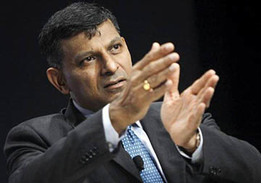
NEW DELHI - In an embarrassment for the government, Bharatiya Janata Party (BJP) leader Subramanian Swamy on Thursday blamed Reserve Bank of India Governor Raghuram Rajan for rising inflation and increasing unemployment, and called for his immediate removal. Swamy, a nominated Rajya Sabha member, told reporters outside parliament that Rajan should be sent back to Chicago at the earliest.

"In my opinion, Rajan is not apt for our country," he opined. "He raised the interest rates on the pretext of checking inflation. But it has resulted in the collapse of industry and thus unemployment has increased," he said.
"He should be sacked and sent back to Chicago, the earlier the better," Swamy added. Rajan on Wednesday said foreign banks have stopped opening branches in India as they have to put aside a lot more capital due to India's 'higher risk' credit rating. Rajan was a professor of finance at the University of Chicago from 1991 to 2013, when he went on public service leave. In 2013, he took charge as RBI governor.
Urging central banks in emerging economies to coordinate better at a time of crisis, Rajan had said that many emerging markets have already been taking steps to help their neighbours.
He also questioned the monetary policy actions of central banks in developed countries in trying to boost demand and said that such moves could actually be having little impact along the lines intended.
"He should be sacked and sent back to Chicago, the earlier the better," Swamy added. Rajan on Wednesday said foreign banks have stopped opening branches in India as they have to put aside a lot more capital due to India's 'higher risk' credit rating. Rajan was a professor of finance at the University of Chicago from 1991 to 2013, when he went on public service leave. In 2013, he took charge as RBI governor.
Urging central banks in emerging economies to coordinate better at a time of crisis, Rajan had said that many emerging markets have already been taking steps to help their neighbours.
He also questioned the monetary policy actions of central banks in developed countries in trying to boost demand and said that such moves could actually be having little impact along the lines intended.

 RSS Feed
RSS Feed
